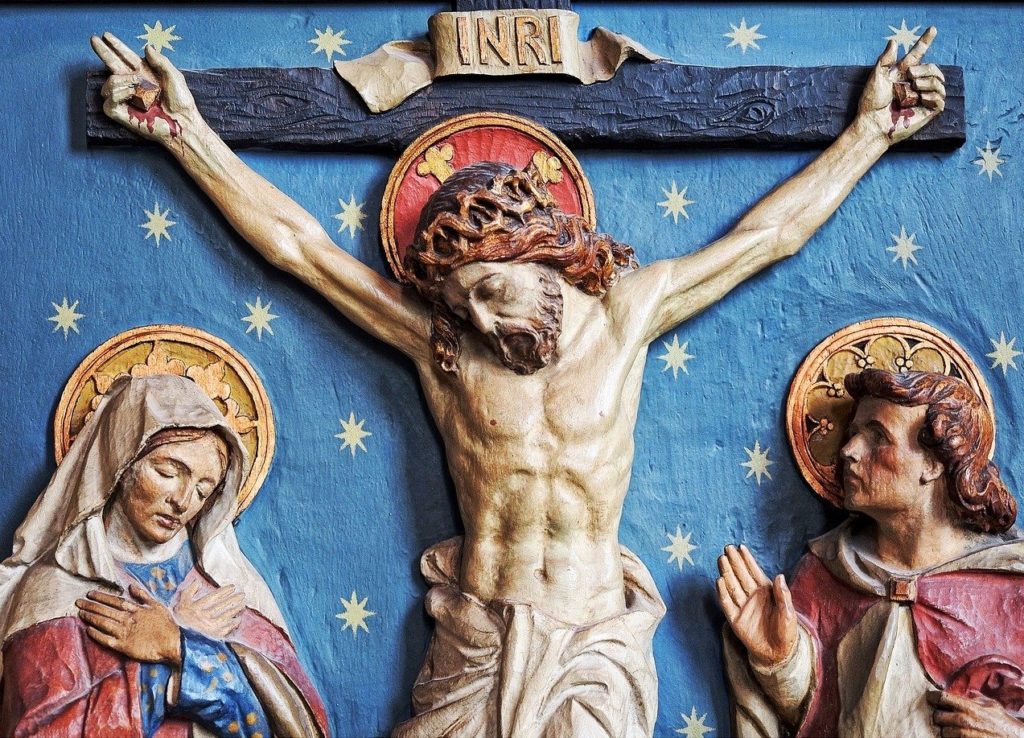Podcast: Play in new window | Download
Subscribe: Spotify | Email | RSS

In this episode I interact with an episode of the Church Grammar podcast by Baptist theologian Dr. Brandon Smith called “Did God Die on the Cross?“
Dr. Smith’s answer is: yes, “God” (i.e. the eternal, divine Son) did die on the cross.
My answer is: no, it was not God but rather God’s human Son who died on the cross, and a fully divine Person can’t in any way die.
It’s a contrast of two ways to approach New Testament doctrine: coming to it with the full arsenal of catholic commitments from the first four “ecumenical” councils vs. trying to let New Testament teaching stand on its own, with no help from Incarnation and Trinity speculations, focusing on its clear claims, and carefully using some conceptual analysis.
Topics include:
- what the New Testament actually says about the one who died for us on the cross
- the standard catholic view that the one self in the incarnate Christ is the divine one, the “complete human nature” there being “anhypostatic”
- our common concept of death and how this relates to the idea of ceasing to exist
- modern “kenosis” speculations about incarnation
- the alleged essential divine attributes of immutability, necessity, and immortality
- two understandings of “the immortality of the soul” and which is common to most Christian traditions
- how standard catholic views seem to imply that Jesus’s crucifixion did not involve a human death
- Why Dr. Smith thinks that if the Son died this amounts to God himself dying.
Did a fully divine Person die on the cross, or was it a very special man? Let us know what you think in a comment below or in the podcast’s Facebook group.

Links for this episode:
Dr. Brandon Smith, his Church Grammar podcast, “Did God Die on the Cross?“, “Did God Die on the Cross?: The Trinity and the Crucifixion”
podcast 145 – ‘Tis Mystery All: the Immortal dies!
Romans 5:1-11; 1 Timothy 6:13-16; Psalm 22; Luke 23:46; Matthew 27:46; John 3:16.
Clarifying Catholic Christologies
podcast 143 – Dr. Timothy Pawl’s In Defense of Conciliar Christology – Part 1
podcast 144 – Dr. Timothy Pawl’s In Defense of Conciliar Christology – Part 2
podcast 235 – The Case Against Preexistence
podcast 146 – Jesus as an Exemplar of Faith in the New Testament
Debate – “Is Jesus Human and not Divine?” – Dr. Dale Tuggy vs. Chris Date
Is Jesus Human and not Divine?
This week’s thinking music is “Alive (Doing It Right) [Instrumental]” by Mise Darling.

I’m having a discussion with an online friend about this and he contends that Jesus’ human body died but his divine soul did not – that it went to preach etc. and never died and that 1 Peter says his spirit was alive. I haven’t thought about Jesus’ death much or what had to “die” to give meaning to the atonement. Surely, if man’s death from the fall was spiritual death/separation, Jesus would have had to have experienced that same sort of death for a substitutionary atonement to make any sense.
Hi Darin,
It is human persons which have human lives, and a human death is the loss of a human life. Now, when someone says that “a human body died” – I assume that they mean that also the person whose body it was died. To say that “the body died but the soul did not die” I take it is just a way of saying that the soul still exists and can be active, even though the body has assumed room temperature and is falling apart. If dualism is true, and souls can be active without a body, then perhaps every human death could be described in that way. But here’s the rub. They seem to be agreeing that the one Jesus died. OK, I agree. But then it follows that he was not essentially immortal. And since divinity requires that, it follows that Jesus was not divine. Finally, yeah I think that this sort of sacrifice requires a real death. But an eternal, immortal, divine being just sloughing off a human body and living on just as well before, continuing its divine life – that is not a death, but just a strange even that might be mistaken for a real human death.
Comments are closed.